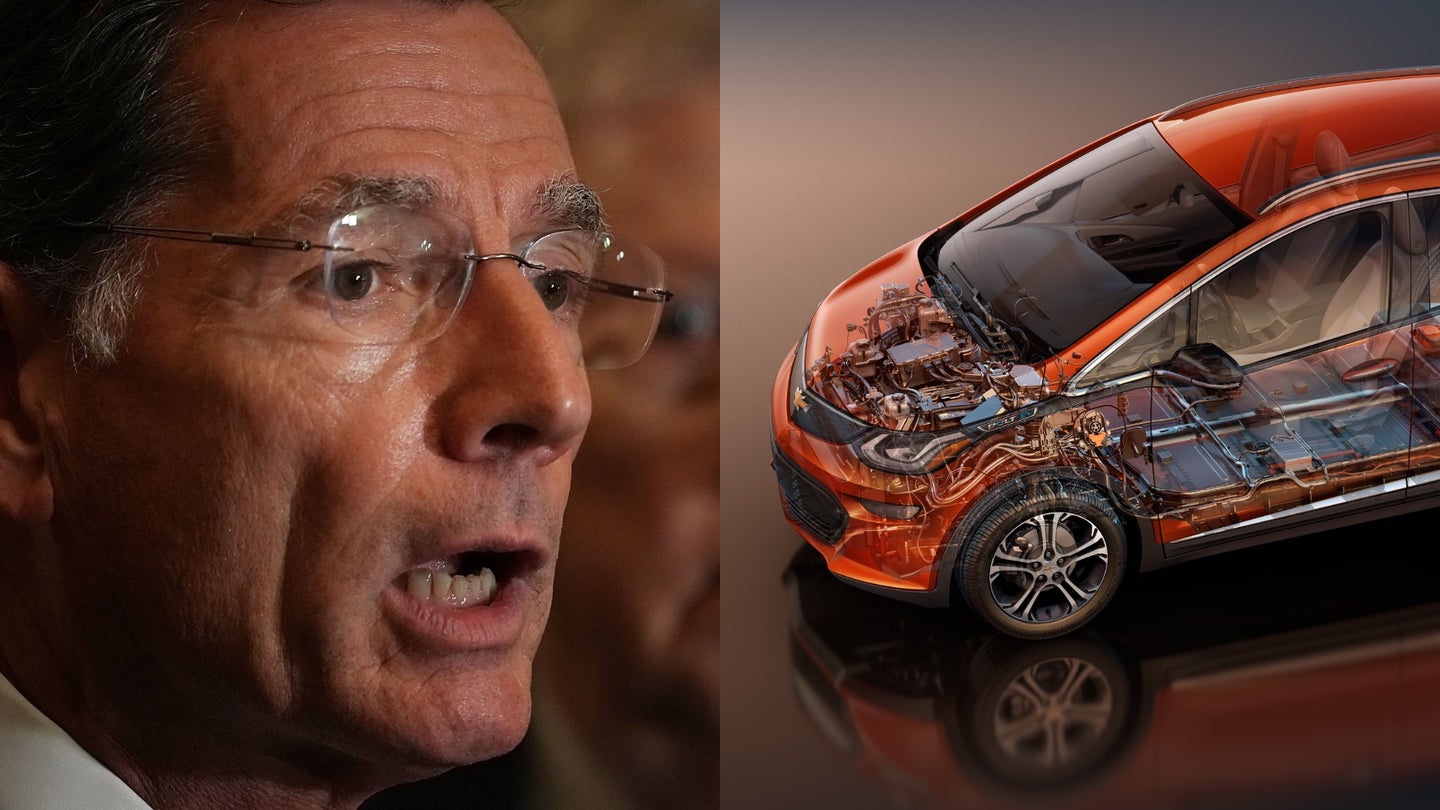Bill to Drop $7,500 Federal EV Tax Credit Introduced in Congress
The bill’s sponsor is Republican Sen. John Barrasso of Wyoming, who accepted almost $500,000 in campaign funds from the petroleum industry.

On Oct. 6, Republican Sen. John Barrasso of Wyoming introduced a bill to the Senate that proposes to end the $7,500 tax credit offered by the federal government for the purchase of new electric vehicles.
Congress published the bill to its online database, where the summation of the bill can be read, though its full text has yet to be published. The bill proposes that "alternative fuel vehicles" such as those powered by electricity or hydrogen lose their exemption to the gasoline tax that pays for infrastructure maintenance.
“A bill to amend the Internal Revenue Code of 1986 to terminate the credit for new qualified plug-in electric drive motor vehicles and to provide for a Federal Highway user fee on alternative fuel vehicles.”
The federal electric vehicle tax credit offers buyers of new electric vehicles a $7,500 tax deduction. Policymakers attempted to scrap the credit in 2017, but later retracted the credit's elimination from the bill in which it was initially proposed. This time, the bill is a standalone bid, not piggybacked on other legislation.
Open Secrets reports that the bill's sponsor Sen. Barrasso is a significant recipient of campaign contributions from the petroleum industry. His campaigns have accepted $497,750 in combined PAC and individual contributions, though more than 60 percent of the cash comes from PACs. Barrasso has also accepted $315,800 from the electric utility industry, which has historically been a supporter of maintaining the EV tax credit. It would seem that petroleum, as a bigger spender, possibly gets a louder voice with Barrasso.
Multiple automakers and environmental groups have protested Barrasso's bill. A spokesperson from the Alliance of Automobile Manufacturers, which represents General Motors, Toyota, Volkswagen, and other, told Reuters that the credit's discontinuation would slow adoption of electric vehicles among the general public.
"The potential elimination of the federal electric vehicle tax credit will impact the choices of prospective buyers and make the electric vehicle mandate in 10 states—about a third of the market—even more difficult to meet," the spokesperson stated.
Tesla and GM are two of the leading EV manufacturers and sellers in the United States. Both are already on the cusp of no longer qualifying for the credit. Tesla's total vehicle sales surpassed the 200,000 disqualification milestone earlier this year, and GM's EV sales are projected to follow suit soon.
If the largest EV sellers no longer qualify for the credit, there will be less of a reason to scrap the credit in the immediate future. Since there is an upper limit to what the federal government will spend to popularize EVs anyway (there are only so many automakers), Congress must decide whether it wants to continue incentivizing the purchase of EVs over internal combustion vehicles.
Much of the rest of the world is already boarding the train headed for an electrified future, whether or not the United States follows suit.
